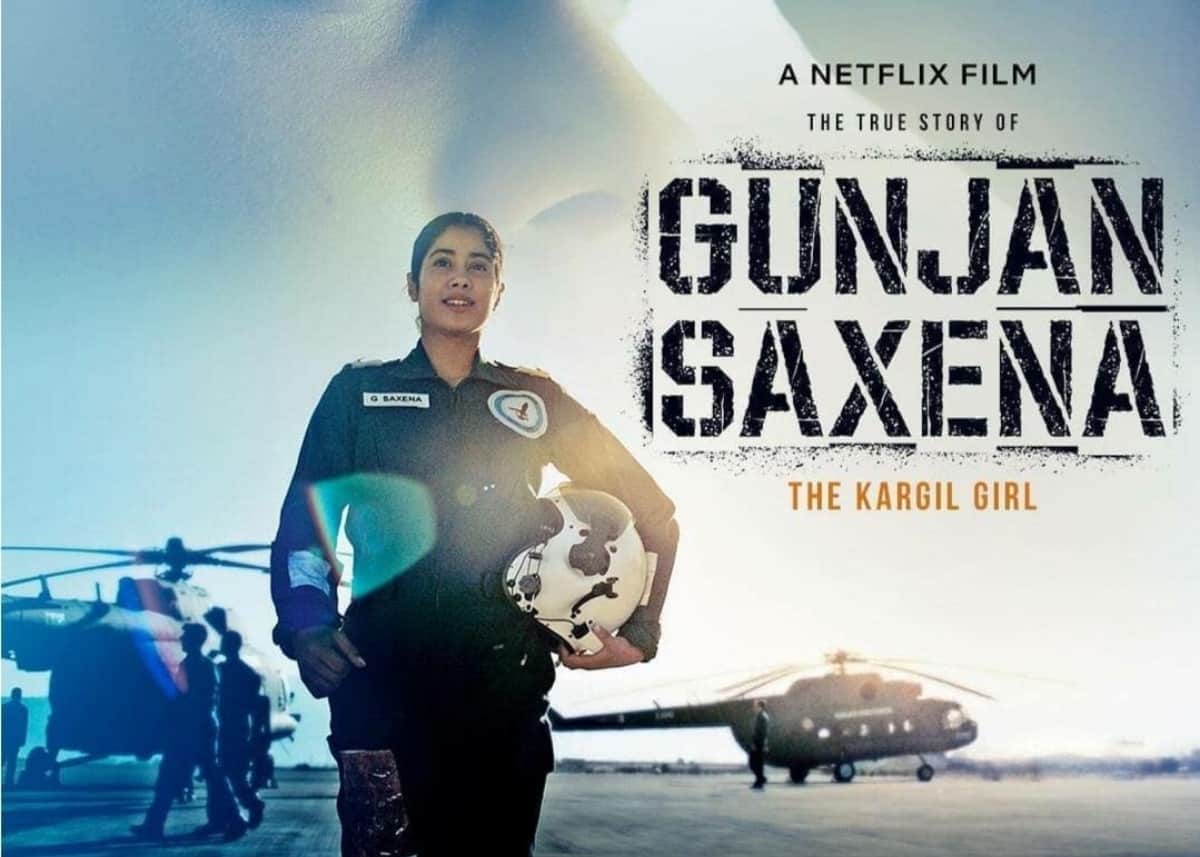credit : sundayguardianlive.com
Story : The film tells the incredible real life story of former Indian Air Force pilot Gunjan Saxena (played by Janvi Kapoor), conflict and gender discrimination.
Named 'Kargil Girl', Gunjan was awarded the Shourya Veer Award in 1999 for her bravery in the Kargil War.
Although men are already determined to excel in something, women who enter the field continue to rub some feathers.
No matter how perfect women are, it is not uncommon to encounter accidental or hidden sexism.
Female athletes ask who their favorite male athlete is.
Are women smart enough to analyze science fiction movies or sports?
As we face it today, Lucknow girl Gunjan Saxena broke the glass roof when she became an IAF pilot in the 90s.
She did this at a time when feminism was obsolete.
2016 saw India recruit its first women fighter pilots into the Indian Air Force.
Women have not been included in the fighter stream in the past.
Flight Lieutenants Gunjan Saxena, Srividya Rajan and others paved the way to follow.
In 1999, at the age of 24, Gunjan Kargil, a former helicopter pilot, became India's first female fighter pilot to fly a leopard helicopter over a battlefield.
He was entrusted with the task of medical evacuation, supply drops and mapping of enemy locations.
Adapted from an Army family raised by a prominent father (Pankaj Tripathi), Gunjan makes the journey unique and his valuable image is his mental state.
Her dreams were never defined by gender because it was not remembered in her childhood.
He was not told if she was a woman.
She has wanted to fly since she was a child and this is what she did.
She never set out to make a statement or inspire people.
But those who thought he was a dwarf with his unbelievable ambition saw it as an act of contempt.
When some tried to cover up her growth, the air under her wings also evolved into men - a group captain who was a retired Army man who equated
her father, his son and daughter, or a clever but aide at the Udhampur air base station.
Sharan Sharma, who was forced to direct with this film, captures the dynamics of gender with honesty and balance.
It is very rare for an Indian biographical film to show people how it is.
Sharma calls on Gunjan not only to take advantage of his story but also to start a conversation about the sexism he faces in the armed forces.
His loyalty to his characters is realistic, yet humane and heartfelt.
The film forces you to redefine patriotism and fight patriarchy, which is sharp in the father-daughter relationship.
Their characters are like Pankaj Tripathi and Janvi Glove.
They explain to you that there may not be a good pair to write these characters.
Although Tripathi brings his famous innate talent (he means Gunjan, Shabana Azmi to Neerja), Janvi Kapoor is a revelation.
Not only does he fit his character, his eyes resemble those of a Gunjan child, as well as reflecting shades of misery and anger to be comfortable with his
Vineet and Angad Bedi find a dimensional character with a limited range, however, they are not forgotten.
Reminiscent of a heartfelt father-daughter conversation in Ram Madhwani's Neerja (Bahadur Bachchan Kaun), the strong point of the film is the scene where Gunjan meets his father.
The Kargil War was an important theme and the film centers on pilot training, helicopter sorting and aerial combat scenarios were well executed.
Gunjan Saxena: The deeply moving story of a Kargil girl father of a feminist and his feudal daughter.
It fights against patriarchal ideology and discrimination and sees it as a bigger threat to progress than it did in 1999.




No comments:
Post a Comment